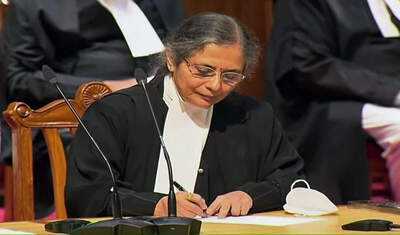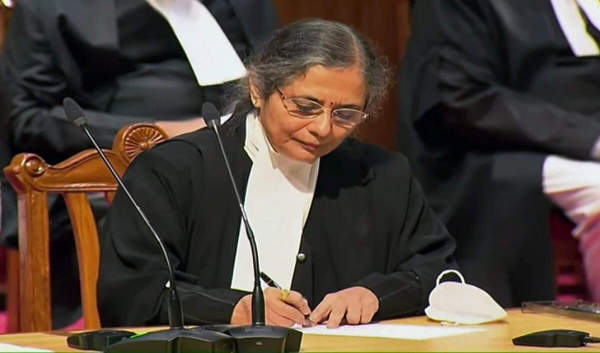
 Justice Bela Trivedi's Final Day at the Supreme Court
Justice Bela Trivedi's Final Day at the Supreme Court
Justice Bela Trivedi marked her last working day at India's Supreme Court, bringing her distinguished tenure to a close. Although her official retirement is scheduled for June, she has chosen to conclude her duties ahead of time. Justice Trivedi was one of the three women who took the oath as judges of the Supreme Court and was among the nine new appointments. She also holds the distinction of being the first female judge to be appointed to the Supreme Court from the Gujarat High Court.
In a landmark ruling in 2024, the court decided by a 6:1 majority that states can create sub-categories within Scheduled Castes (SC) to allocate reservations to more disadvantaged groups. Justice Trivedi was the sole dissenting voice, arguing that such sub-categorization by states was unconstitutional. On the day before her final working day, the bench led by Justice Trivedi highlighted the inadequacy of special courts for cases under the Protection of Children from Sexual Offences (POCSO) Act. The court expressed hope that both the Union and state governments would take necessary measures to establish POCSO courts and ensure timely resolutions of cases.
Justice Trivedi was also part of the bench that upheld the constitutional validity of the provisions regarding 'arrest powers' under the Customs and GST Acts, while also setting preconditions for their application. The bench dismissed an appeal from Trinamool Congress MP Abhishek Banerjee, who challenged a summons issued to him by the Enforcement Directorate under the Prevention of Money Laundering Act (PMLA), 2002. Additionally, the bench rejected an appeal filed by AAP leader Satyendar Jain against the denial of bail in a money laundering case, directing Jain, who was on interim bail, to surrender before the special court.